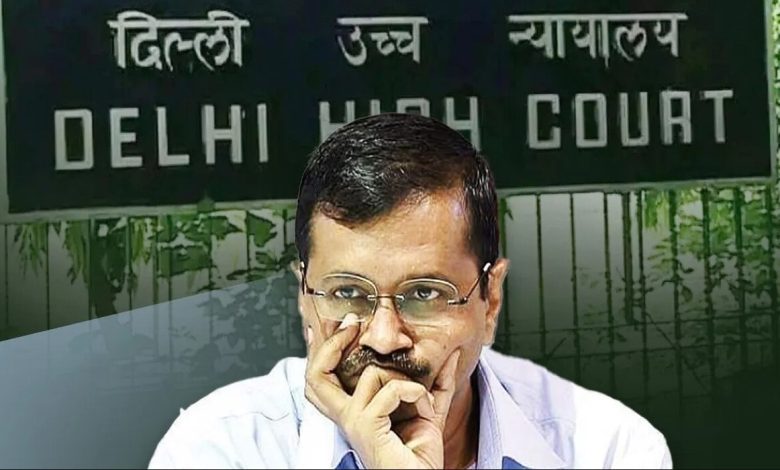
New Delhi: On Friday, the Enforcement Directorate (ED) filed its charge sheet against Delhi Chief Minister Arvind Kejriwal and the Aam Aadmi Party (AAP) under the Prevention of Money Laundering Act (PMLA) regarding alleged irregularities in the Delhi excise policy 2021-22. This marks the first time a political party has been named as an accused in a charge sheet.
An official familiar with the development stated, “A detailed prosecution complaint (or charge sheet) has been filed based on irrefutable evidence showing that Kejriwal is the key conspirator who used his position as CM of Delhi to facilitate the offence of money laundering punishable under section 4 of the PMLA by the 'company,' i.e., AAP.”
According to the official, “AAP has been named as an accused under PMLA as it was the major beneficiary of the proceeds of crime generated in the excise policy. At least Rs. 45 crore out of Rs. 100 crore in bribes taken in exchange for favoring certain liquor traders was used for AAP’s Goa poll campaign. As the national convener and a member of the party’s national executive, Kejriwal was ultimately responsible for the funds being used and generated.”
The latest charge sheet is the eighth in the series filed by the ED under PMLA in the excise case since November 2022. Kejriwal was arrested by the federal financial crimes probe agency on March 21 from his residence at Flagstaff Road in Delhi.
A day after the arrest, the ED informed a special court that Kejriwal was not only the brain behind AAP who controlled its major activities but was also one of the founding members involved in the decision-making of the policy, as evident from the statements of the witnesses. He is also implicated in the demand for kickbacks, which generated further proceeds of crime, the agency claimed.
Last Friday, the Supreme Court ordered Kejriwal's release on interim bail until June 1 amid the ongoing Lok Sabha elections.
A second officer elaborated on ED’s decision to name AAP in the charge sheet, stating, “AAP has been defined as a company under section 70 of the PMLA, which deals with offences by companies.”
The AAP allegedly received around Rs. 100 crore in bribes, and Kejriwal used his position to utilize proceeds of crime worth about Rs. 45 crore from the alleged kickbacks in AAP’s election campaign in Goa in 2022, the ED has alleged.
The agency said on March 22 in court, “Statements of various persons engaged in the election campaign-related activities by AAP in Goa have revealed that cash payments were made to them for their work done as survey workers, area managers, assembly managers, etc. These persons and activities related to the election campaign were overall managed by Vijay Nair and Durgesh Pathak, AAP MLA in Delhi.”
The ED has linked Kejriwal to the generation and use of the kickbacks, saying that at the time of the offence, the CM was “in charge of and responsible for the said ‘company,’ that is AAP.”
“Therefore, not only the AAP but Kejriwal shall be deemed to be guilty of offences punishable under section 4 of the PMLA and shall be liable to be prosecuted and punished as provided under section 70 of the PMLA,” ED said in court while seeking his custody on March 22.
The agency further claimed that the money laundering took place in the Delhi excise policy “with Kejriwal’s knowledge” and that “he didn’t exercise any timely diligence to prevent such contravention.”
The ED also stated that the CM has been “intrinsically” involved in the entire conspiracy of the Delhi liquor policy irregularities, referring to his actions involving policy formulation, hatching the conspiracy of kickbacks with the South Group members, and eventually using part of the proceeds of crime in the election campaign of AAP.
“In this manner, it is established that Kejriwal, who is ultimately in charge of AAP, was intrinsically involved in the acts of policy formulation, the kickback scheme, and the final use of the proceeds of crime thus generated, including conspiracy thereof. Therefore, he is also liable for the use of the proceeds of crime of Rs. 45 crore in the election campaign of AAP in Goa under section 70(1) of PMLA, 2002, apart from his role in his personal capacity,” the ED said.
According to the agency, AAP’s former communication in-charge, Vijay Nair, acting on behalf of the party’s leaders, received kickbacks to the tune of Rs. 100 crore from the South Group to let liquor dealers gain control of the wholesale business and licenses under the now-scrapped excise policy.
The agency cited a statement by businessman Sarath Reddy, who claimed he met Kejriwal, who then asked him to stay in touch with Vijay Nair as someone who “could take care of every problem.”
Linking Nair with the Delhi CM, the ED contended that Nair is Kejriwal’s “very close associate” who acted as a broker and middleman on behalf of top leaders of AAP (especially Kejriwal).
The Delhi government’s 2021-22 excise policy aimed to revitalize the city’s flagging liquor business. It intended to replace a sales-volume-based regime with a license fee for traders and promised swankier stores, free of the infamous metal grilles, ultimately giving customers a better buying experience. The policy also introduced discounts and offers on the purchase of liquor, a first for Delhi.
However, the plan came to an abrupt end with Delhi’s Lieutenant Governor VK Saxena recommending a probe into alleged irregularities in the regime. This ultimately resulted in the policy being scrapped prematurely and being replaced by the 2020-21 regime, with AAP alleging that Saxena’s predecessor sabotaged the move with a few last-minute changes that resulted in lower-than-expected revenues.


